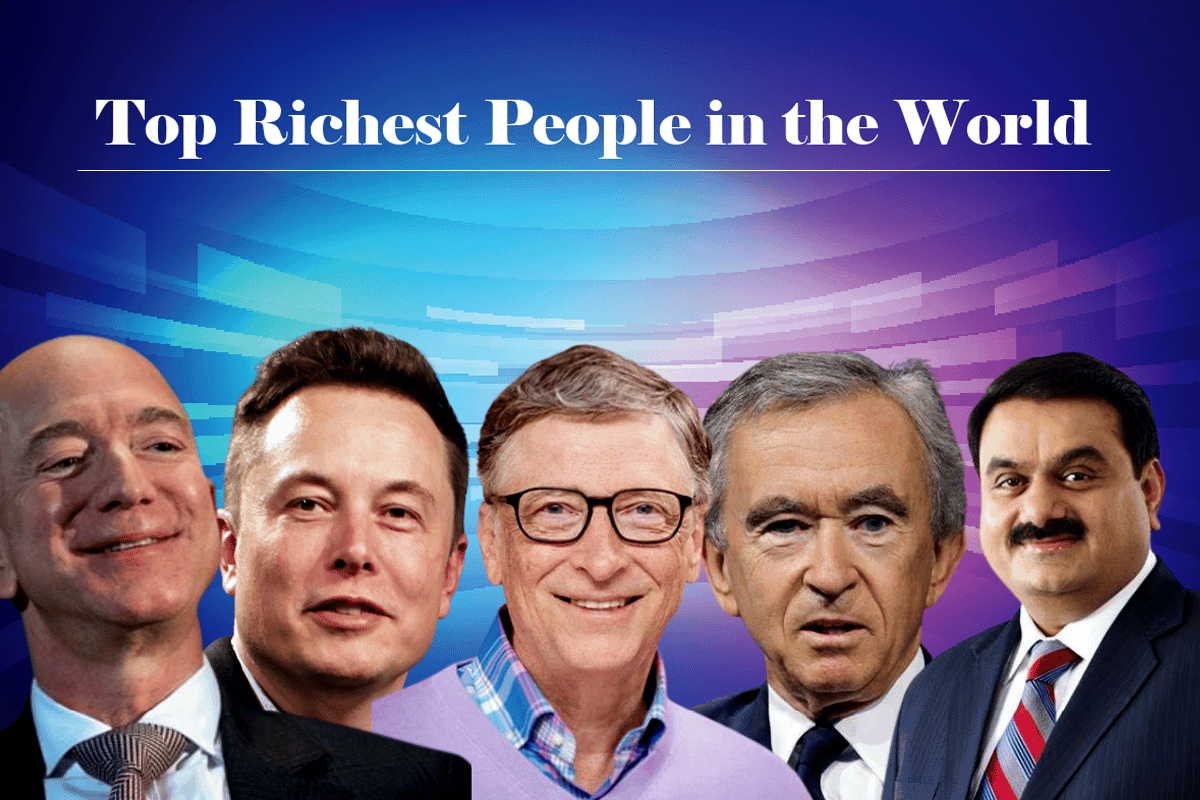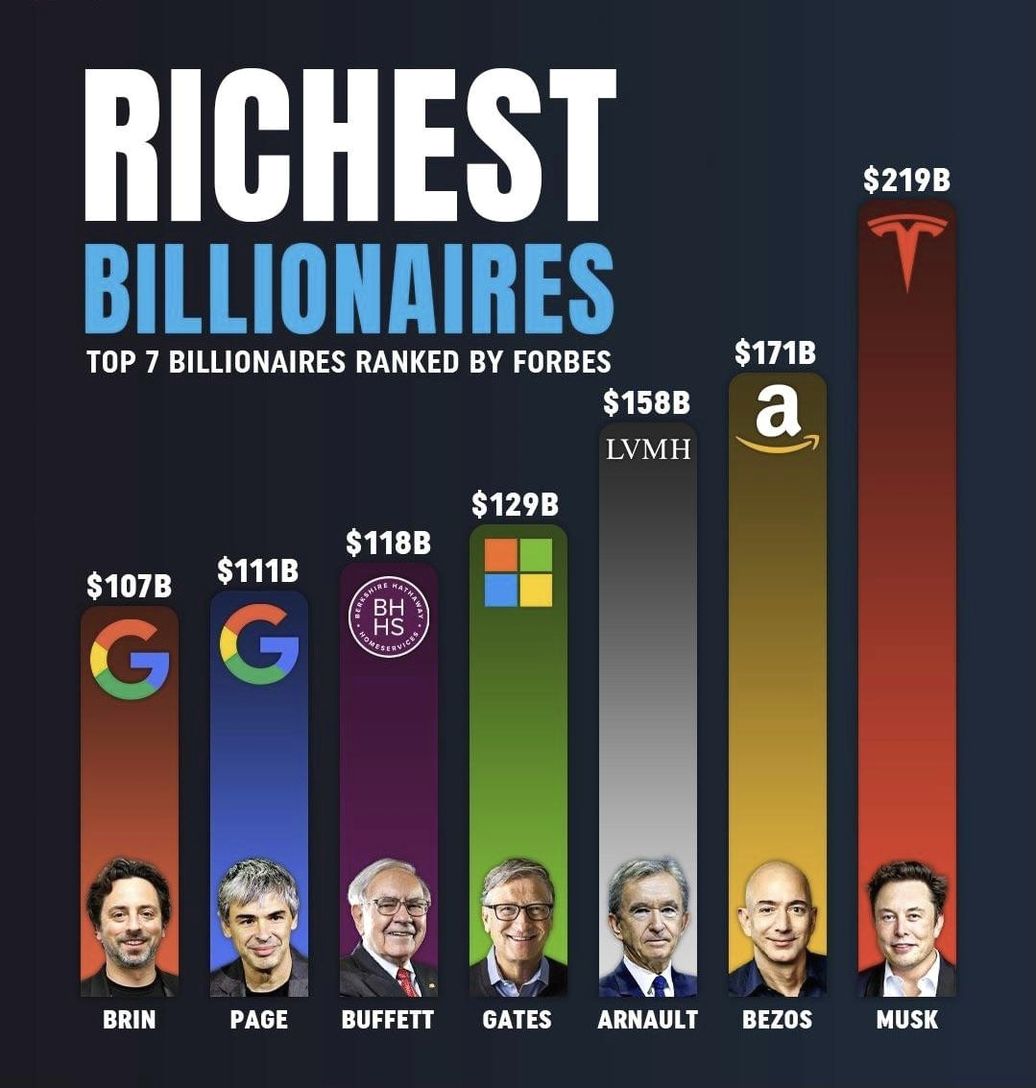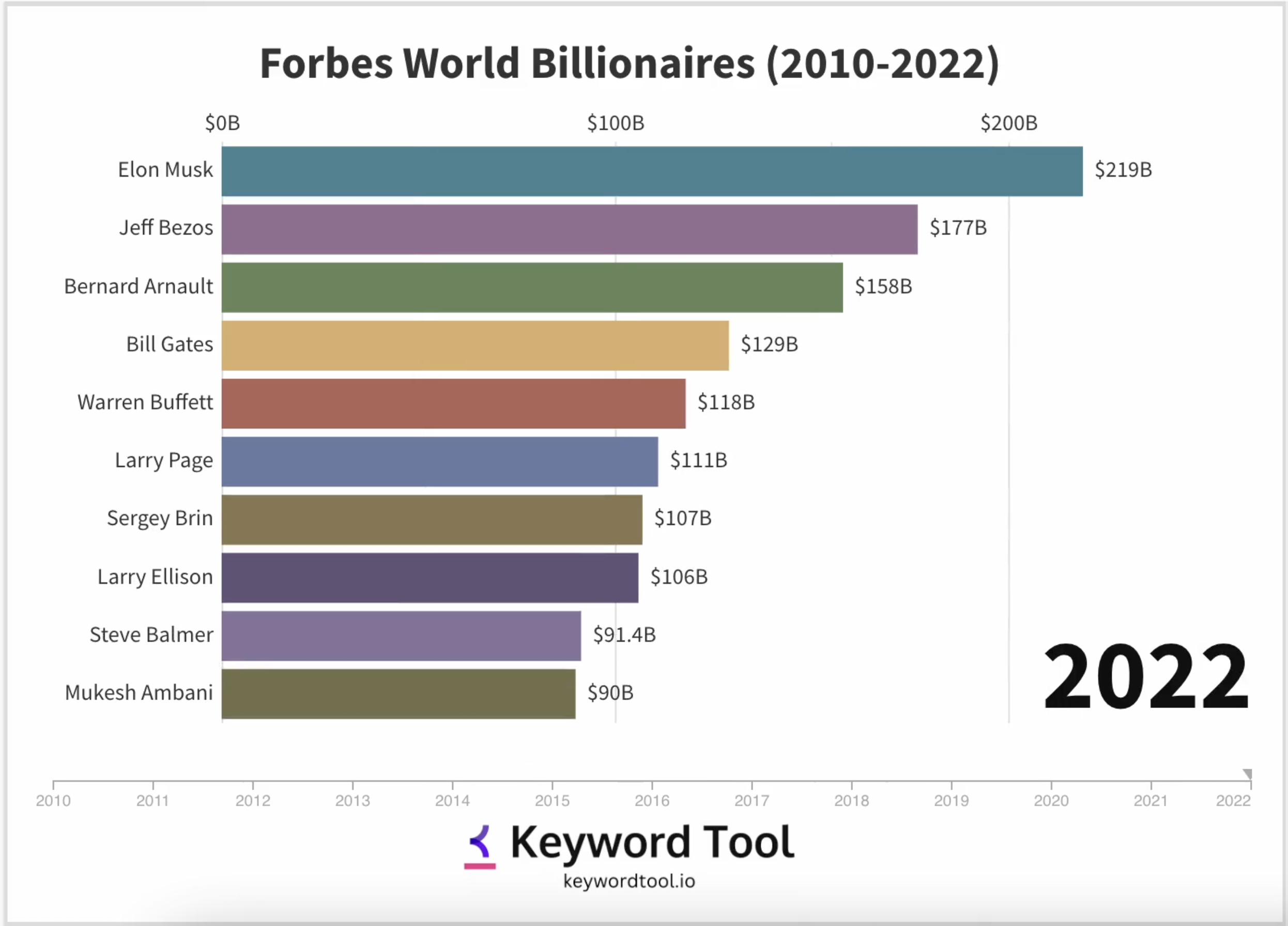Have you ever wondered about the incredible fortunes some people accumulate, perhaps even dreaming about the kind of money that lets you live out every fantasy? It’s a pretty fascinating thought, isn't it? We often hear about the titans of industry or tech moguls with their massive wealth, and there's a natural curiosity about how much money they truly possess. It's almost like a game, tracking who's up and who's down on those global wealth rankings. So, you know, when we talk about incredible riches, a lot of people might think about the folks whose names are always in the news for their vast business empires.
But what about the storytellers, the people who craft the narratives that move us, the authors? It's a bit different, isn't it? Their wealth comes from a different kind of creation, from the power of words and imagination. Many people, myself included, often wonder just how much wealth these literary giants manage to gather. It’s a very intriguing question, to be honest, and it really makes you think about the various ways immense fortunes are built in our world today.
When we look at who holds the most money on the planet, it’s usually the names connected to huge companies or vast investments that pop up. So, you might ask, where do authors fit into this picture of extreme wealth? While the kind of comprehensive, daily updated rankings for authors aren't as public or detailed as those for, say, tech billionaires, we can still get a sense of how wealth is measured and what it takes to reach those truly astonishing levels. It gives us a pretty good idea, actually, of the sheer scale of wealth out there.
Table of Contents
- Understanding Extreme Wealth: How Fortunes Are Tracked
- The Global Billionaire Landscape: A Snapshot
- So, Who Are the Richest Authors? A Different Kind of Fortune
- How Author Wealth Is Measured (and Why It's Different)
- Frequently Asked Questions About Wealth and Authors
Understanding Extreme Wealth: How Fortunes Are Tracked
When we talk about the wealthiest people on Earth, we're usually looking at incredibly detailed rankings put together by organizations that spend a lot of time figuring out just how much money everyone has. For instance, Forbes, a very well-known source, puts out its world's billionaires list every year. This list gives you the net worth, the age, and even the country of residence for these extremely rich individuals. It's quite a bit of work, to be fair, gathering all that data.
They take a snapshot of each person's wealth at a very specific moment in time. For example, their 2025 world's billionaires list has information as of March 7, 2025. And for their Forbes 400, which ranks the richest Americans, the estimates are a snapshot of each member's wealth as of September 1, 2024. This shows you that these numbers are not static; they are very much tied to a particular date. There's also a detailed methodology that explains how they come up with these figures, which is pretty important for accuracy.
Then you have something like the Bloomberg Billionaires Index, which is a daily ranking of the world’s richest people. This index is always updating their net worth figures, sometimes even daily, based on how the stock market is doing and the overall economic conditions. So, the numbers can shift quite a bit, you know, from one day to the next. All figures are current as of July 1, 2025, for some of their recent reports. It's really quite a dynamic way to track fortunes, that is.
These organizations look at everything from stock holdings to real estate, and other investments to figure out a person's total net worth. It’s a rather comprehensive look at their entire financial picture. The details about these calculations are provided in the net worth analysis on each billionaire’s profile page, so you can really get into the specifics if you want to. This gives us a strong foundation for understanding the scale of wealth we're talking about.
The Global Billionaire Landscape: A Snapshot
Looking at these global rankings, you quickly see some truly mind-boggling figures. For example, the latest reports mention a record 3,028 billionaires on this year’s ranking, and their combined wealth stands at a staggering $16.1 trillion. That's a truly immense amount of money, isn't it? It just goes to show you the sheer concentration of wealth among a relatively small group of people.
Among these, there are what they call "centibillionaires," individuals worth $100 billion or more. These 15 centibillionaires alone are worth an estimated $2.4 trillion, which is more than the bottom 1,500 billionaires combined. That’s a pretty stark difference, actually, highlighting the extreme top tier of wealth. It’s a lot to take in, honestly.
So, as of recent reports, Elon Musk, the CEO of Tesla, is the richest person in the world, a title he’s apparently held since May 2024. His estimated worth is a stunning $342 billion. Just imagine that kind of money, it's almost hard to wrap your head around it. Larry Ellison also overtook Mark Zuckerberg as the world’s second wealthiest person, showing how these rankings can really shift around.
When it comes to the richest woman in the world, that title currently belongs to Alice Walton, who is the daughter of Walmart founder Sam Walton. As of July 1, 2025, she is worth an estimated $107 billion and is listed as the world’s 17th richest person. Other reports, like those from March 8, 2024, put her fortune at an estimated $101 billion, showing that slight variation depending on the snapshot date. She reclaimed the title from French L'Oréal heiress Françoise Bettencourt, so it's a bit of a back-and-forth at the very top, you know.
We also see figures like Dangote, who is noted as the richest black billionaire. He isn't the only one, of course, but his inclusion highlights the diverse sources of wealth across the globe. These examples really show the different industries and legacies that create such vast fortunes. It's very interesting to see the variety, actually.
So, Who Are the Richest Authors? A Different Kind of Fortune
Now, this is where our main question comes in, and it's a pretty good one: who are the richest authors? It's important to understand that the kind of wealth discussed in the global billionaire rankings, with figures like Elon Musk's $342 billion or Alice Walton's $107 billion, typically comes from very large-scale business ventures, technology, or vast inherited fortunes. These are often tied to publicly traded companies, where stock values can be tracked daily, which is why we see those precise, frequently updated net worth figures.
When we look at authors, their path to wealth is usually quite different. While some authors achieve incredible financial success, their fortunes, in most cases, don't quite reach the dizzying heights of the centibillionaires we just talked about. Their wealth is built on intellectual property, on the sales of books, the rights to their stories for film and television, and perhaps speaking engagements or merchandise. It's a much more personal kind of empire, in a way, built on creativity and storytelling.
Think about it: an author’s income often comes from royalties, which are a percentage of each book sold. While a book like Harry Potter or a Stephen King novel can sell hundreds of millions of copies, the per-unit profit for the author, while significant, is not the same as owning a massive tech company or a retail giant. The scale of the business is just fundamentally different. So, you know, while they can earn a lot, it’s not quite the same kind of money.
Authors who become extremely wealthy often do so through a combination of massive book sales, successful film adaptations that generate huge licensing fees, and a long career with a consistent output of popular work. They might also own their own publishing imprints or have other business ventures related to their literary brand. However, their wealth is typically more private and less subject to the daily, public fluctuations of stock markets that define the fortunes of the world's absolute richest individuals. It's just a different ball game, basically.
So, while the provided information about the world’s richest people gives us a great insight into how wealth is measured and who holds the most money globally, it doesn't specifically list authors. This is because, generally speaking, even the most successful authors, while certainly very wealthy by most standards, usually don't reach the multi-billion dollar thresholds that put them on these very specific, top-tier lists alongside people like Elon Musk or the heirs to vast industrial fortunes. It's a rather important distinction, you know, when you think about it.
How Author Wealth Is Measured (and Why It's Different)
The way an author's wealth is measured, or at least estimated, contrasts quite a bit with how the fortunes of, say, a tech titan are tracked. For the billionaires on the Forbes and Bloomberg lists, a huge portion of their net worth is often tied up in publicly traded company shares. This means their wealth can be tracked with pretty incredible precision, changing literally by the minute as stock prices go up and down. That's why the Bloomberg Billionaires Index can update daily, reflecting stock market performance and broader economic conditions. It’s really quite a direct link, you know.
For authors, their wealth is often a bit more private and, in some respects, less volatile on a daily basis. Their primary income streams come from royalties on book sales, which are paid out periodically, perhaps quarterly or semi-annually. Then there are advances for new books, which are payments made upfront against future royalties. These can be quite large for very popular authors, but they are still fixed sums or based on projected sales. It's not quite the same as watching your stock portfolio fluctuate by billions every day, is it?
Beyond book sales, authors also earn money from subsidiary rights, like film rights, television adaptations, merchandising, and even stage plays. These can generate significant income, especially for a hugely successful series. However, these deals are often private, and the exact figures are not publicly disclosed in the same way that a CEO's stock holdings are. So, while we know these authors are making a lot of money, getting an exact, up-to-the-minute net worth figure is practically impossible. It's a very different kind of financial landscape, that.
Consider the source of wealth. Many of the individuals on the general billionaire lists derive their fortunes from founding or leading massive corporations, often in technology, retail, or finance, or from inheriting vast business empires. Their wealth is inherently tied to the valuation of these large entities. Authors, on the other hand, build their wealth primarily from their creative output and intellectual property. It’s a direct result of their writing, which is a truly unique source of income, in a way. So, the sheer scale and nature of the underlying assets are quite different.
While an author like J.K. Rowling has certainly achieved incredible financial success, becoming one of the wealthiest women in the UK, her fortune, while immense, is typically measured in hundreds of millions, not tens or hundreds of billions. This distinction is important when comparing them to the absolute top of the global wealth lists. It just highlights that there are different tiers of wealth, and different ways to get there. Learn more about wealth measurement on our site, and link to this page here for more insights into how different types of fortunes are accumulated. It’s a pretty interesting topic, actually.
Frequently Asked Questions About Wealth and Authors
Are authors typically as rich as tech billionaires?
Not usually, no. The general billionaire lists, like those from Forbes and Bloomberg, track individuals with tens or hundreds of billions of dollars, often from vast tech companies, industrial empires, or inherited fortunes. While some authors achieve incredible wealth, typically in the hundreds of millions, their fortunes don't generally reach the multi-billion dollar levels seen at the very top of those global rankings. It's a different scale of money, in some respects.
How do organizations like Forbes and Bloomberg calculate net worth?
They browse today’s rankings of the wealthiest people and families globally, discovering their net worth, age, and other information. They use snapshots of wealth as of specific dates, like March 7, 2025, or September 1, 2024, for Forbes, or daily updates based on stock market performance for the Bloomberg Billionaires Index. They look at all assets, including stocks, real estate, and other investments, to get a total picture. There's a detailed methodology for all of it, too, which is quite thorough.
What are the main sources of an author's wealth?
An author’s wealth primarily comes from book sales royalties, advances for new books, and income from subsidiary rights. These rights include adaptations for film, television, and stage, as well as merchandising. For very successful authors, long-term consistent sales and popular adaptations can generate substantial fortunes over time. It’s all about the stories, basically, and how widely they are shared. You can find more information about wealth tracking on external sites, for instance, by checking out a reputable financial news source like Forbes' billionaire list.



Detail Author:
- Name : Jeremy Okuneva IV
- Username : kennedy79
- Email : njacobi@yahoo.com
- Birthdate : 1988-03-26
- Address : 261 Conroy Extension Lake Dellbury, SD 11272
- Phone : +1-503-823-9577
- Company : Abshire, Stanton and Funk
- Job : Engineer
- Bio : Voluptas eveniet sed et dolor. Ut facere quisquam quasi eaque pariatur sint. Saepe recusandae ex quidem dicta consequatur perferendis et.
Socials
tiktok:
- url : https://tiktok.com/@cassinr
- username : cassinr
- bio : Voluptatem ullam quibusdam ipsum maxime dolorem in exercitationem placeat.
- followers : 5601
- following : 2317
linkedin:
- url : https://linkedin.com/in/rhiannon_official
- username : rhiannon_official
- bio : Iure id placeat ad fugiat aut rerum accusamus.
- followers : 5654
- following : 1817
instagram:
- url : https://instagram.com/cassinr
- username : cassinr
- bio : A natus necessitatibus est placeat vel. Consequatur tempore aut accusantium quae.
- followers : 2523
- following : 807